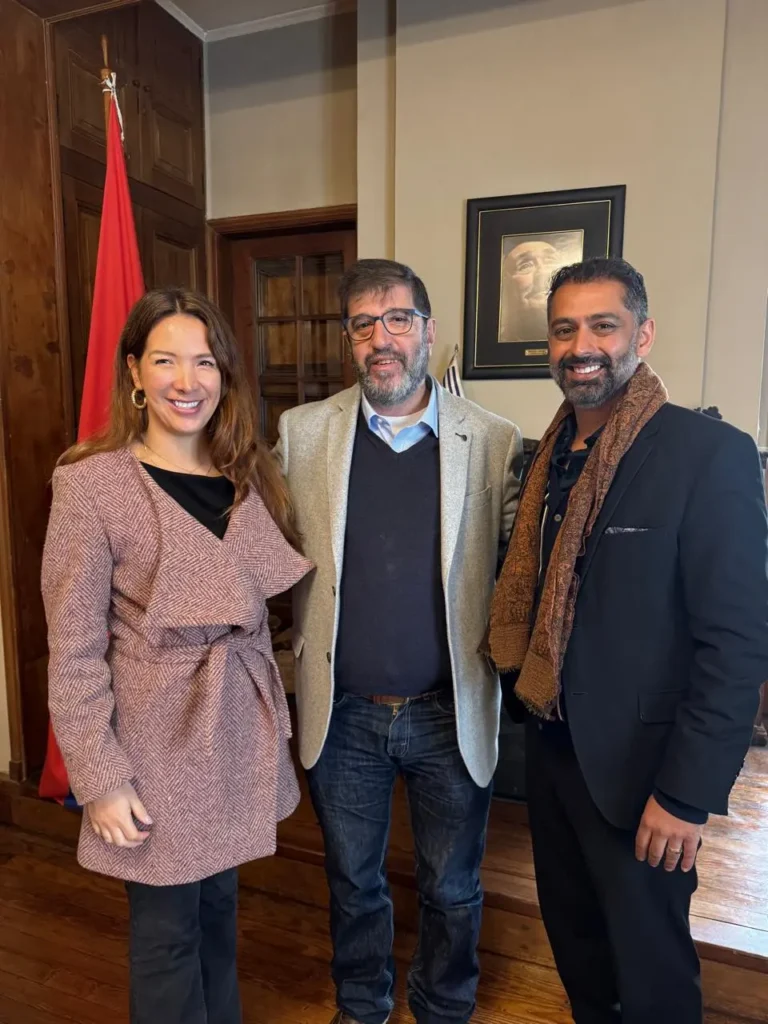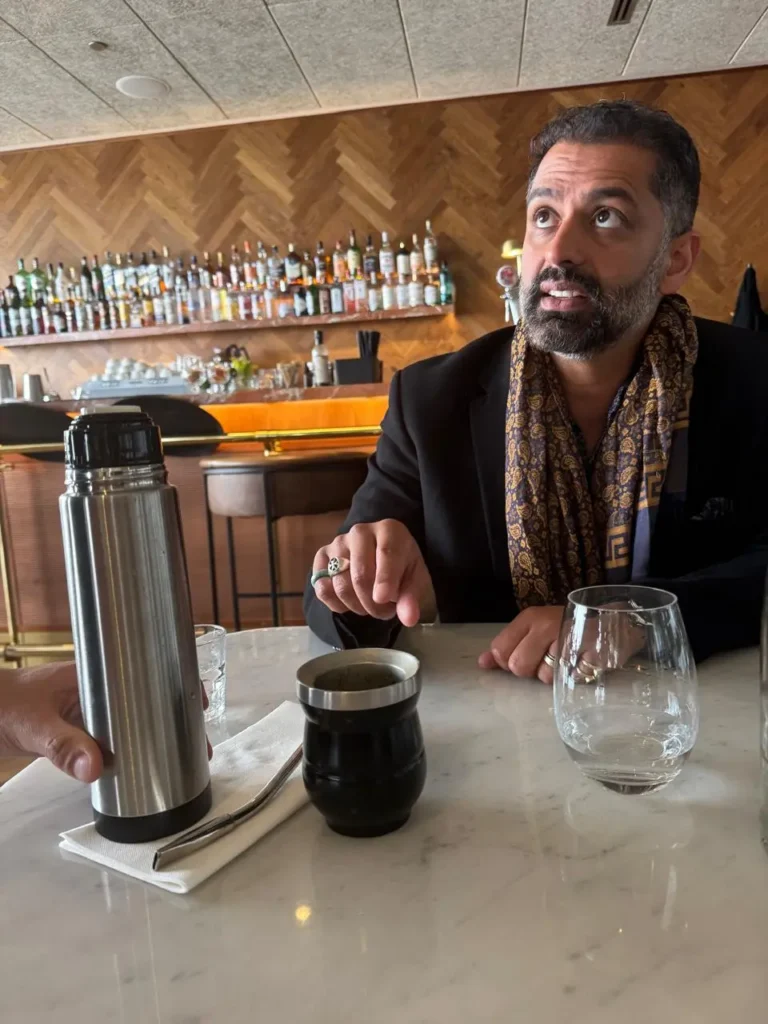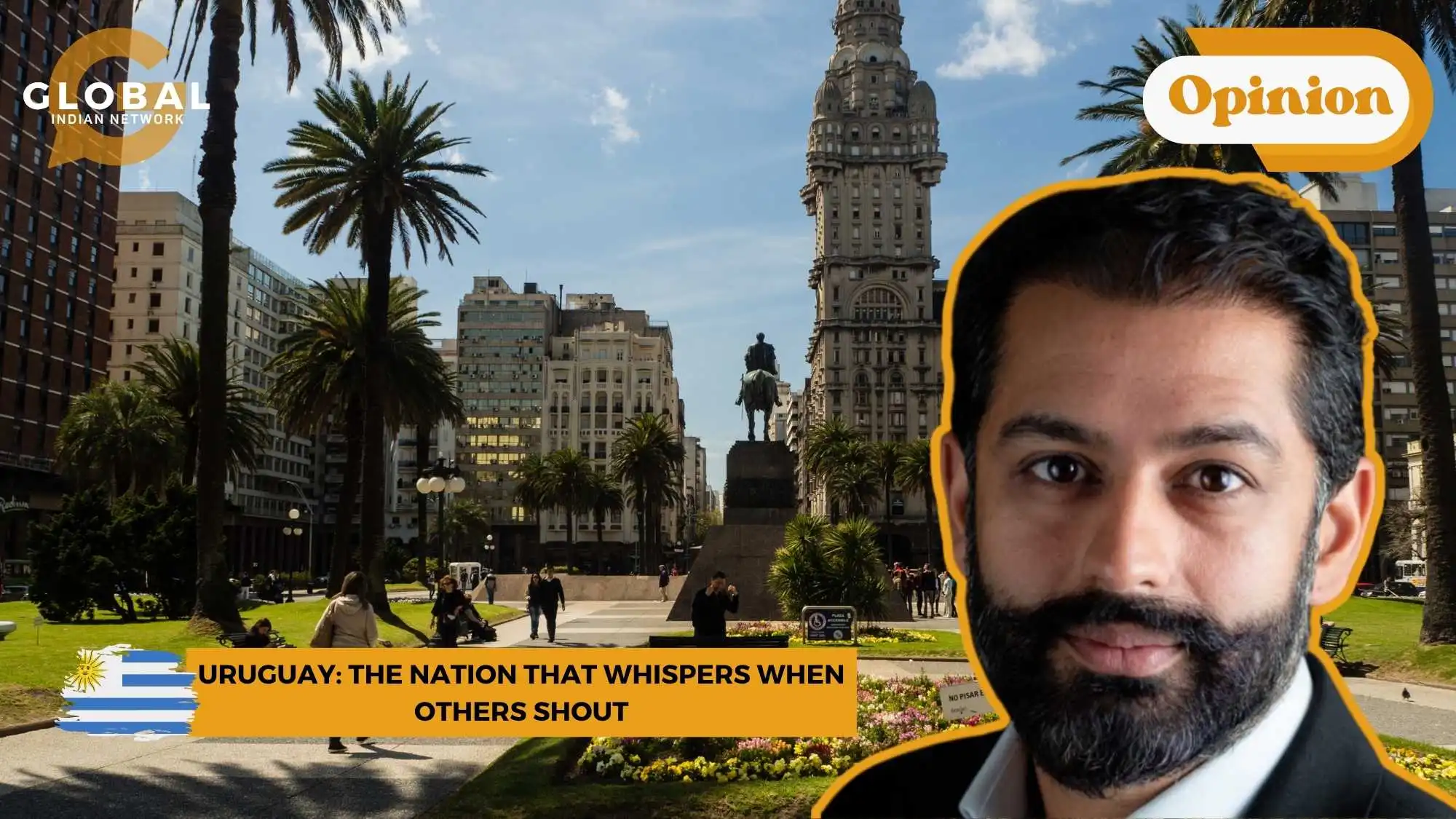I came to Uruguay not to find anything, really. Which, of course, is precisely when the world decides to hand you something you didn’t know you needed.
This was supposed to be a straightforward dive into a nation. A few meetings. Some high-level discussions. A polite nod before moving on. Not a mirror. Not a moment of pause. And definitely not a place that would start unpacking me while I was still figuring out how to order coffee.
But within 24 hours of landing in Montevideo, I found myself quietly falling for a country that feels like it’s in on a secret. One, it’s not trying to sell. Two, it doesn’t care if you understand.
At first glance, it’s easy to misread the place. Montevideo isn’t designed to impress you. No bold skyline. No glittering façades. Just a patchwork of boxy buildings that seem to have shrugged at time. That shrug? That’s the point.
From my hotel balcony, I saw a city stitched in muted reds and greys. A terrace café that looked like a happy accident. It reminded me of my university days in Torino. That same European defiance that doesn’t beg to be seen but dares you to look deeper. The kind of place that says, we were here before you arrived, and we’ll still be here long after you’ve gone.
And yes, it’s cold. Properly, unapologetically cold. The kind that creeps into your bones and starts rearranging your definition of comfort. As a Brit, I’m genetically engineered to complain about the weather. Uruguay has given me plenty of material. And yet, somehow, even the chill feels earned. It fits.
I stepped into an old office to meet a political figure. Not a polished minister with pre-rehearsed lines. A real, boots-on-the-ground political thinker. There was a fire burning in the corner. A real one. Crackling wood, the smell of timber, and a kind of quiet that settles into your ribs. The warmth wasn’t just from the flame. It came from presence. And that’s when I thought, maybe this country gets it.

You don’t come to Uruguay for flash. You come for the truth.
I walked into a law office that felt like it had been plucked from a different century. Walls lined with books. Ladders to reach them. A scent of paper and patience. It was like walking into the arms of a retired philosopher who’s replaced ambition with silence and mate.
Speaking of mate, no, I’m not a fan. It tastes like someone boiled regret and then added guilt. But they love it here. People cradle thermoses like lifelines. They sip it in groups, like a communion of stillness. And even that feels like rebellion — a rejection of the “buy more, post more, be more” mentality that’s choking the rest of the world.
Then there are the people.

I met a guy called Nicolás. A receptionist in one of the buildings. We spoke for half an hour. Fluent in Swedish, Spanish, and with a strong command of English. But what struck me wasn’t his multilingual talent. It was the clarity in his eyes. That stillness. The sense that he knows who he is. That Uruguay knows what it is. Not trying to be the next anything. Just being. Not chasing validation. Living a philosophy. A kind of Kaizen for the soul.
Even the taxis here have stories. Old. Dented. Occasionally held together by hope and habit. And yet they move with grace. The drivers, men and women alike, have the look of people who’ve read the book and skipped the sequel. Not jaded. Just… done with the noise.
And the politics? You want maturity?
One business leader told me, without blinking, “We respect the head of state. Even if we didn’t vote for him.” That hit different. You can be a thoughtful philosopher, they said, and still not the right person to lead. That level of nuance — that’s a democracy grown past its teenage years.
It’s absurd how quickly this place got under my skin. It shouldn’t work. But it does.


The buildings are cracked. The food is simple. The weather bites. There are no Rolexes screaming for attention, no Bentleys flexing their paint jobs. Just people. Living. Sharing. Breathing a society into being — not from profit margins, but from shared presence.
Uruguay doesn’t care if you’re from London, Johannesburg, or the moon. It won’t roll out a red carpet. What it will do — without asking for anything in return — is hold you in place. Make you still. And remind you of the version of yourself you buried under ambition.
It’s not curated. It’s not commercialised. It’s not broken — so why fix it?
This is just the beginning.
Through G-Audio, in collaboration with the LA Times and our partners at One World Media, we’re going to be telling Uruguay’s story — one conversation at a time. Not through slogans. Through people. Through lived moments. Through the remarkable ordinariness that makes this nation extraordinary.
Because in a world addicted to performance, Uruguay whispers.
And somehow, still owns the room.
Let us know your thoughts. If you have burning thoughts or opinions to express, please feel free to reach out to us at larra@globalindiannetwork.com.










